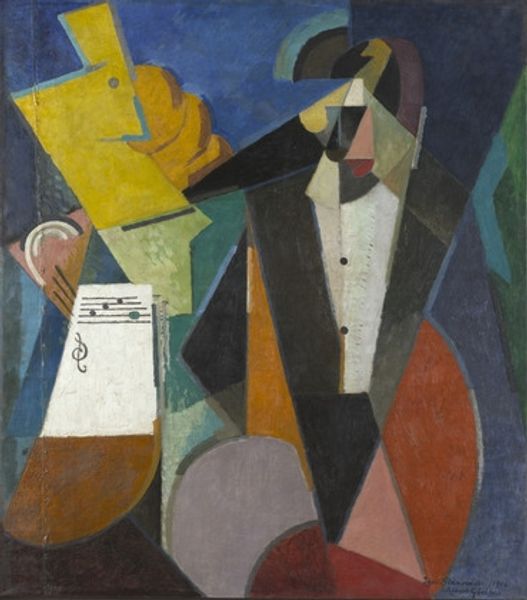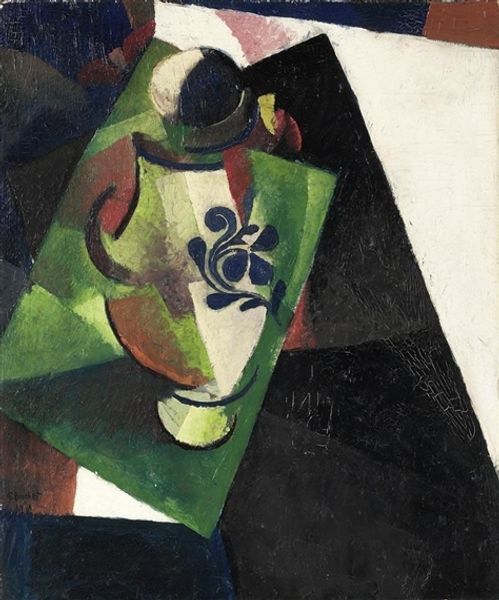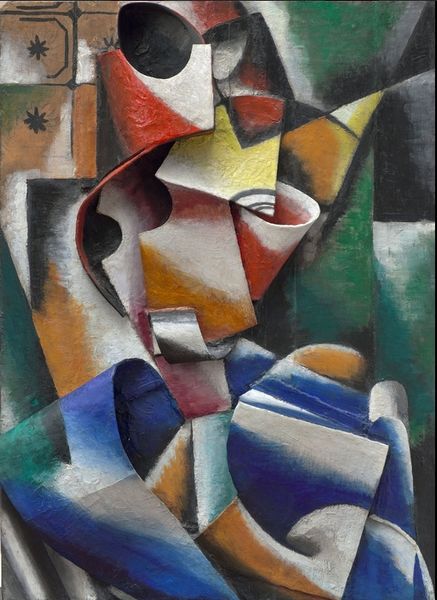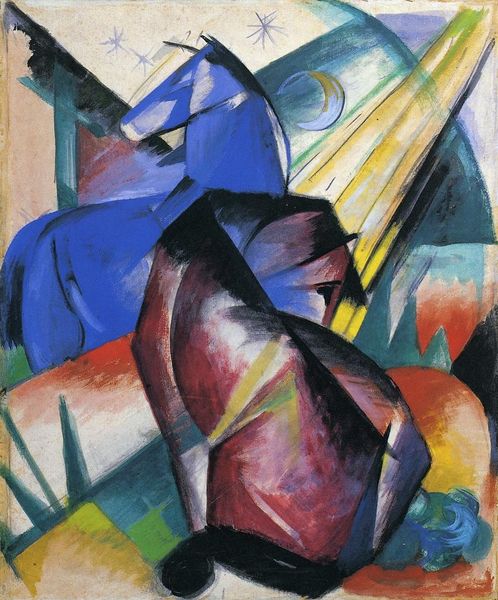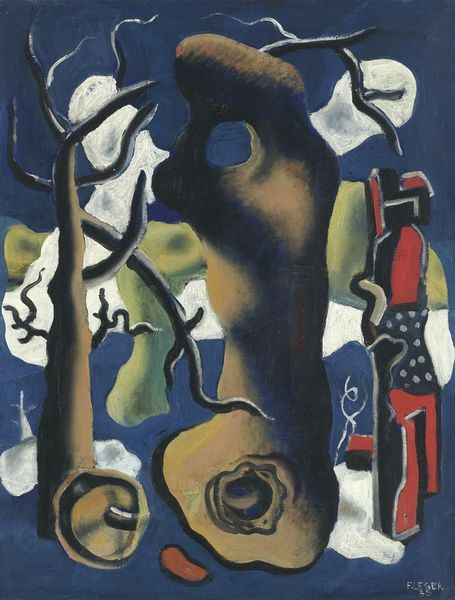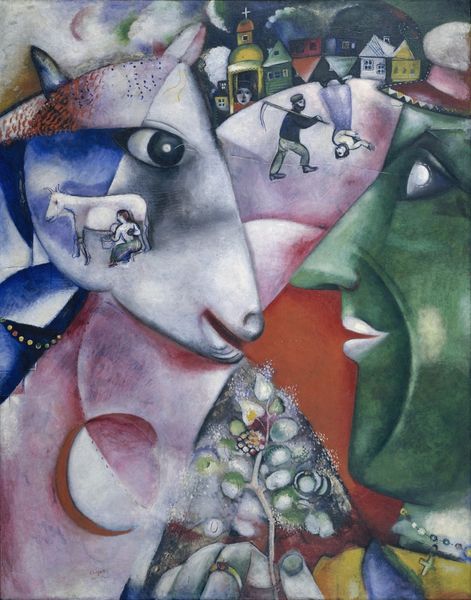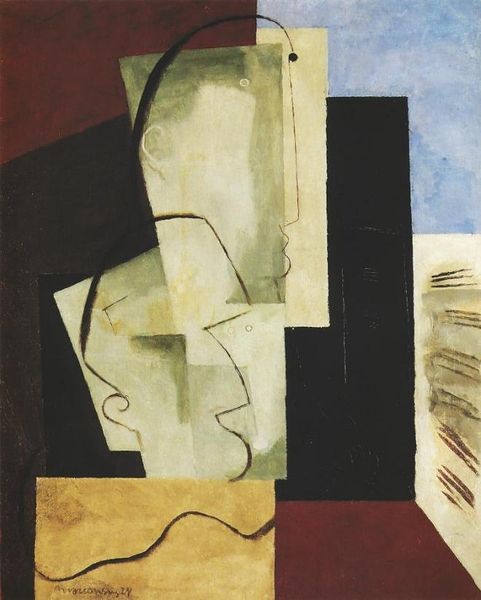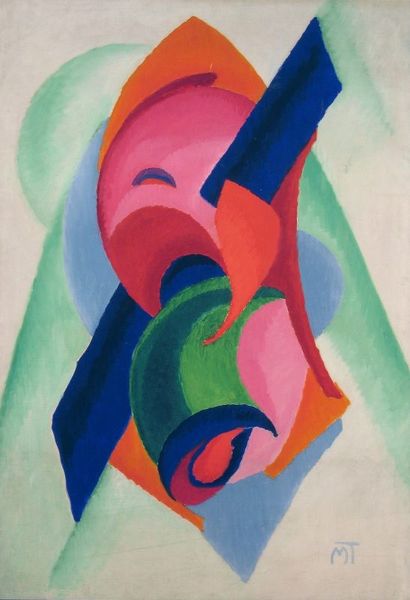
painting, oil-paint
#
portrait
#
painting
#
oil-paint
#
german-expressionism
#
oil painting
#
group-portraits
#
expressionism
#
cityscape
#
portrait art
Dimensions: overall: 55.88 × 55.88 cm (22 × 22 in.) framed: 74.93 × 76.2 × 6.35 cm (29 1/2 × 30 × 2 1/2 in.)
Copyright: National Gallery of Art: CC0 1.0
Curator: Elisabeth Epstein's "People on a Café Terrace," created in 1913, offers us a glimpse into the urban social scene of early 20th-century Germany. Editor: It's rather jarring, isn't it? The angular faces and clashing colors create a palpable sense of unease. It feels more like a tense encounter than a casual gathering. Curator: Indeed. As a German Expressionist, Epstein aimed to depict inner emotions and subjective experiences rather than objective reality. The choice of a café setting, a modern space of social interaction, highlights anxieties around urbanization and changing social structures. Editor: Looking at the composition, I notice the figures are crammed into the frame, almost claustrophobic. And these harsh, almost crude brushstrokes further contribute to this sense of discord. Notice how she eschews traditional perspective? It feels distorted. Curator: The distortion aligns with the Expressionist movement's break from academic artistic conventions. It reflects a broader societal disillusionment prior to the First World War. Epstein, as a woman artist during that era, may have been acutely aware of the societal pressures and gender roles, and using that to express feelings of the individual. Editor: What's striking to me is the lack of interaction between the figures. Each seems lost in their thoughts, isolated despite their physical proximity. I almost find it claustrophobic in this oil painting; their psychological states amplified. The lack of detail softens some of the angular tension of the Expressionist style. Curator: It is an oil painting. Perhaps, this depiction speaks to the alienation and fragmentation of modern life. It underscores Expressionism's concern with humanity's inner turmoil and societal angst amid the rapidly changing landscape of the time. The formal elements amplify those concerns, creating a lasting impression of that cultural and emotional state of Germany. Editor: In its fragmented portrayal of ordinary urban existence, "People on a Café Terrace" offers a poignant glimpse into the anxieties and disaffections that defined the pre-war generation. Curator: The picture makes clear Expressionism's engagement with the societal realities of the era.
Comments
No comments
Be the first to comment and join the conversation on the ultimate creative platform.
